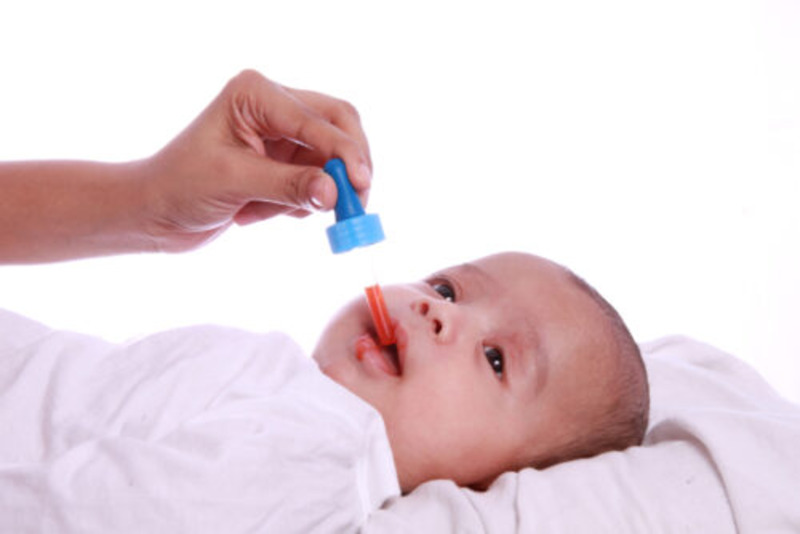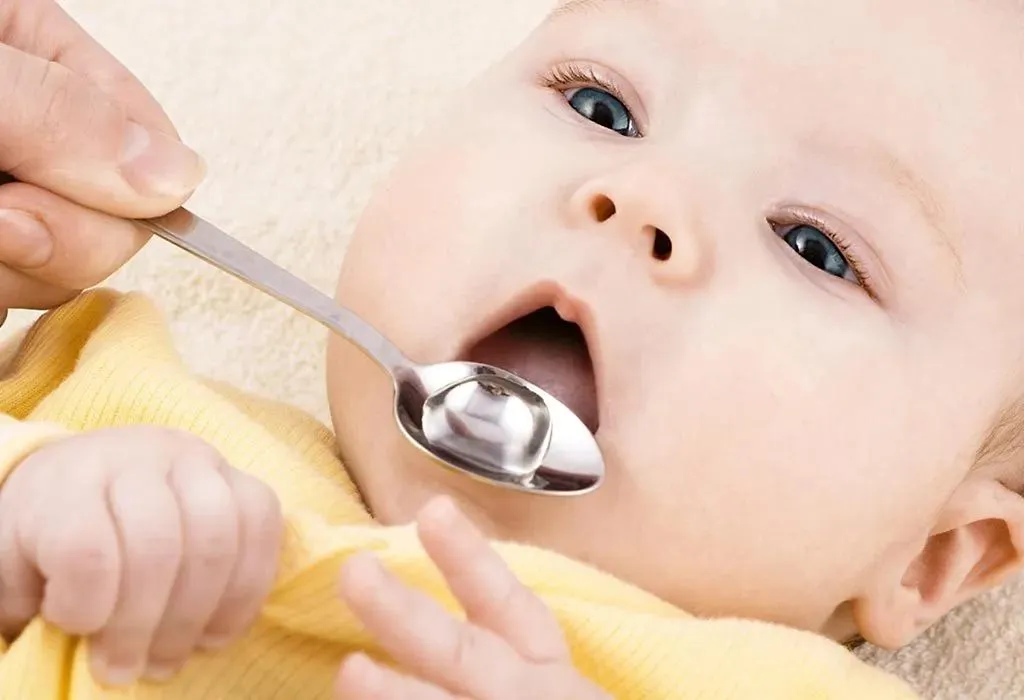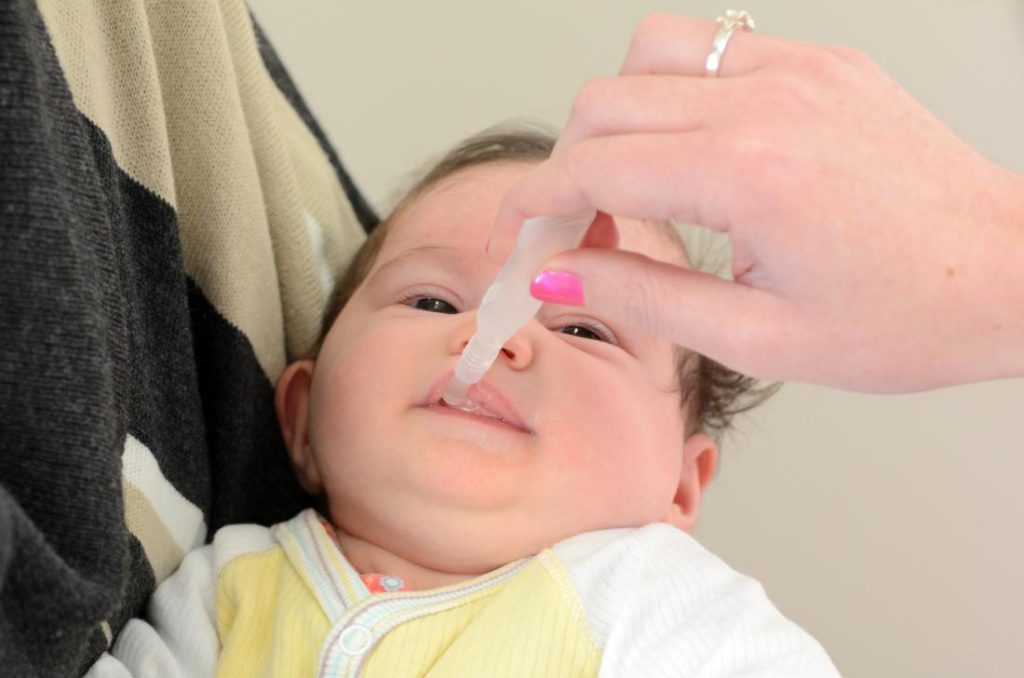When to Start Gripe Water for Baby? Is it a Colic Solution?
Are you a new parent navigating the sometimes stormy seas of babyhood? Are you looking for ways to calm your little one’s tummy tantrums? Are you planning to use gripe water? Are you wondering when to start gripe water for baby? As infants develop, so do their digestive systems, often leading to common discomforts like gas, colic, and general fussiness. Knowing the right time to introduce gripe water can bring much-needed relief to both baby and parent alike.
In this comprehensive guide, we will delve into the world of gripe water and everything you need to know about its safe and effective use for your precious bundle of joy. From understanding how gripe water works to its potential benefits in soothing stomach issues, we’ve got you covered.
Let’s explore when to start gripe water for baby, potential alternatives for addressing colicky symptoms, and the considerations to keep in mind before soothing your little one’s tummy troubles with this time-tested remedy. Get ready to navigate the challenging waters of infant digestive care with confidence and clarity.
Introduction to Gripe Water

Gripe water has long been a go-to remedy for parents seeking relief for their little ones’ stomach discomfort. This natural concoction is commonly used to soothe digestive issues in infants, providing much-needed relief for both babies and their caregivers.
But what exactly is gripe water, and why has it gained such popularity among parents?
Gripe water is a gentle herbal supplement formulated to alleviate symptoms of colic, gas, and general stomach discomfort in babies. It typically contains a combination of natural ingredients such as ginger root extract, sodium bicarbonate, and other gentle substances that help ease abdominal discomfort.
The main purpose of gripe water is to provide relief for fussy babies experiencing tummy troubles. It is believed to work by relieving gas buildup and soothing an upset tummy. Many parents find gripe water to be an effective remedy for common baby issues such as colic and excessive crying.
It’s worth noting that while gripe water is widely available and has been used for generations, it’s always a good idea to consult with your baby’s healthcare provider before introducing any new supplements. Their guidance can help ensure that gripe water is the right choice for your little one and that it is administered in a safe and appropriate manner.
In the next sections, we will further explore the composition and benefits of gripe water, as well as discuss the appropriate age to start using it for your baby. Stay tuned to gain a comprehensive understanding of how gripe water can bring relief to your little one’s tummy troubles.
What is Gripe Water?

Gripe water is a popular remedy used to alleviate stomach discomfort in infants. It is typically made from a combination of herbal extracts, such as ginger or chamomile, along with other ingredients that aid in soothing digestion. Gripe water is often used to relieve common issues like gas, colic, and upset tummies in babies.
The formulation of gripe water can vary among different brands, but most commonly, it contains natural ingredients known for their calming effects on the digestive system. However, it’s essential to note that not all gripe water formulations are created equal.
Some may contain a combination of ingredients that may not be suitable for infants. Therefore, it’s crucial to choose a reputable brand and consult with your baby’s healthcare provider before administering gripe water.
When considering gripe water for your baby, it’s necessary to look for a quality product made with safe and gentle ingredients. Always follow the recommended dosage guidelines provided by the manufacturer or as advised by your healthcare professional.
Overall, gripe water can provide much-needed relief for babies experiencing digestive discomfort. However, it’s essential to exercise caution and monitor your baby’s response to ensure their well-being.
Remember, before making any decisions about your baby’s health, it’s always best to consult with a healthcare professional.
How Does Gripe Water Work?

Gripe water is believed to work through several mechanisms to help soothe babies’ digestive issues. Here’s how it works:
1. Calming an Upset Stomach
- Gripe water contains ingredients like ginger and fennel, which have been traditionally used to alleviate stomach discomfort.
- These natural herbs help relax the muscles in the digestive tract, reducing spasms and alleviating gas buildup that can contribute to colic and tummy troubles in babies.
2. Easing Digestion
- Gripe water may also stimulate the production of digestive enzymes, aiding the breakdown of food and promoting smoother digestion.
- This can help relieve symptoms of indigestion and prevent the discomfort associated with gas and bloating.
3. Soothing Irritated Gums
- Some gripe water formulations include ingredients like chamomile or lemon balm, which have mild numbing properties.
- These ingredients can provide relief to babies experiencing teething discomfort by soothing their irritated gums.
It’s important to note that gripe water is considered a dietary supplement, and its effectiveness may vary. If your baby continues to experience persistent stomach issues, it is advisable to consult with a healthcare professional for personalized advice and guidance.
Remember to follow the recommended dosage instructions provided by the manufacturer and consult your pediatrician before starting gripe water or any other remedies for your baby’s well-being.
When to Start Gripe Water for Baby

Introducing gripe water to your baby can provide much-needed relief from stomach discomfort. However, determining the appropriate age to start using gripe water requires careful consideration.
Here are some guidelines to help you navigate the “when to start gripe water for baby” decision.
Factors to Consider
1. Age
Most healthcare professionals recommend waiting until your baby is at least 1 month old before introducing gripe water. At this stage, their digestive system is more developed, making it safer to administer.
2. Consult Your Pediatrician
It’s crucial to consult with your baby’s healthcare provider before starting any new remedies. They can evaluate your baby’s individual needs and provide personalized advice.
3. Understanding Symptoms
Before turning to gripe water, it’s important to differentiate between normal fussiness and colicky symptoms. While gripe water can alleviate mild stomach discomfort, severe symptoms may require medical attention.
4. Safety and Ingredients
When choosing a gripe water product, carefully evaluate the ingredients for safety and effectiveness. Opt for brands that contain natural and gentle ingredients, and avoid those with potential allergens or harmful additives.
Keeping these factors in mind, it’s essential to follow your baby’s cues and consult with healthcare professionals to determine the appropriate time to start using gripe water. Remember, each baby is unique, and what works for one may not work for another.
How to Give Gripe Water to a Baby

Administering gripe water to your baby is a simple process that can help provide relief from stomach discomfort. Follow these instructions to ensure safe and effective use:
1. Read the instructions
Before using any gripe water product, carefully read the label for dosage recommendations and any specific instructions provided by the manufacturer.
2. Find the right moment
Choose a time when your baby is relatively calm and not too full or hungry. This can make the administration process more comfortable for both you and your little one.
3. Measure the dosage
Use the provided dropper or syringe to measure the recommended dose. Ensure accuracy by following the product instructions provided.
4. Administer in small doses
Place the dropper or syringe near the back of your baby’s mouth, between their cheek and gums. Slowly release the gripe water, a little at a time, allowing your baby to swallow it naturally.
5. Observe your baby’s response
Keep an eye on your baby for any adverse reactions or discomfort. If you notice any unexpected symptoms, consult your pediatrician.
6. Follow the recommended frequency
Gripe water should typically be given after feedings or when your baby is experiencing digestive discomfort. Follow the recommended dosing schedule provided by the manufacturer.
Remember, it’s essential to choose a gripe water product that is specifically formulated for infants, ensuring it is safe and suitable for your baby’s age. If you have any concerns or questions, consult your baby’s healthcare provider for guidance.
Alternatives to Gripe Water
When it comes to managing fussy and colicky symptoms in babies, gripe water is often a go-to remedy for many parents. However, if you’re looking for alternative options, there are several natural remedies and techniques that may provide relief for your little one.
Here are some alternatives to consider:
1. Breast Milk
- Breast milk is known to be easily digestible for babies and can help soothe their upset tummies.
- Nursing or offering expressed breast milk may provide comfort and alleviate colic symptoms.
2. White Noise
- The soothing sound of white noise, such as a fan or a gentle lullaby, can create a calming environment for babies.
- White noise can help distract them from discomfort and promote better sleep.
3. Baby Massage
- Gentle baby massage techniques can not only promote bonding but may also help improve digestion and relieve gas.
- Using circular motions on your baby’s tummy can aid in releasing trapped gas and easing abdominal discomfort.
4. Gas Relief Exercises
- Certain exercises, such as bicycle legs or gently pushing your baby’s knees towards their tummy, can help alleviate gas buildup and provide relief from colicky symptoms.
5. Herbal Supplements
- Some herbal supplements, like chamomile or fennel tea, are believed to have calming effects on the digestive system.
- However, it’s important to consult with your baby’s healthcare provider before offering any herbal remedies.
6. Probiotics
- Probiotics are beneficial bacteria that can help balance the gut microbiome and improve digestive health.
- Adding a probiotic supplement to your baby’s routine may help manage colic symptoms.
Remember, every baby is unique, and what works for one may not work for another. It’s essential to observe your baby’s response to any alternative remedies and consult with their healthcare provider before making any changes to their care routine.
If your baby’s colicky symptoms persist or worsen, it’s important to seek guidance from a healthcare professional to rule out any underlying medical issues.
Possible Risks and Side Effects
While gripe water is generally considered safe for infants, it’s important to be aware of potential risks and side effects associated with its usage. Here are some key points to consider:
1. Allergic Reactions
- Some infants may have allergic reactions to certain ingredients in gripe water.
- Common allergens include dill, fennel, chamomile, and sodium bicarbonate.
- It’s crucial to monitor your baby for any signs of allergic reactions, such as rashes, difficulty breathing, or swelling.
2. Digestive Upset
- Gripe water contains herbal extracts that may cause digestive upset in some babies.
- Symptoms such as diarrhea, vomiting, or excessive gas should be closely monitored.
- Discontinue the use of gripe water if these symptoms persist or worsen.
3. Contamination
- It’s important to choose a reputable brand of gripe water to minimize the risk of contamination.
- Check for proper manufacturing and quality control practices and ensure the product is free from harmful substances.
4. Drug Interactions
- Certain medications or medical conditions may interact with gripe water.
- Always consult with your baby’s healthcare provider before using gripe water, especially if your baby is taking any other medications.
5. Overuse
- Using gripe water excessively or in higher doses than recommended can lead to electrolyte imbalances and potential harm to your baby.
- Follow the recommended dosage instructions provided by the manufacturer or your healthcare provider.
Remember, every baby is unique, and what works for one may not work for another. If you have any concerns or questions about using gripe water for your baby, it’s best to consult with your baby’s healthcare provider for personalized advice.
Stay informed, observe your baby’s reactions, and prioritize their health and well-being above all else.
Gripe Water Options to Consider
When it comes to choosing gripe water for your baby, there are several popular brands and specific formulations available in the market. Here are some options to consider:
1. Mommy’s Bliss Gripe Water
This brand offers a variety of gripe water formulas, including organic and original formulations. Their gripe water is made with gentle ingredients like organic ginger and helps provide relief from gas and colic symptoms.
2. Colic Calm Gripe Water
Known for its effectiveness in relieving colic symptoms, this gripe water contains a combination of natural ingredients, including fennel, ginger, and chamomile. It helps soothe your baby’s upset tummy and promotes digestive comfort.
3. Woodward’s Gripe Water
A trusted brand for generations, Woodward’s Gripe Water is a popular choice among parents. It contains sodium bicarbonate and dill oil, which work together to relieve gas buildup and alleviate abdominal discomfort.
4. Wellements Organic Gripe Water
This gripe water is made from quality organic ingredients and is free from artificial flavors, colors, and additives. It provides much-needed relief from colic and other tummy troubles.
Remember, before choosing any gripe water, it’s important to consult your baby’s healthcare provider. They can guide you in selecting the most suitable option based on your baby’s specific needs.
The Final Note: When to Start Gripe Water for Baby
Understanding when to start gripe water for baby can be a valuable tool in your parenting arsenal. With its potential to soothe digestive discomfort, gripe water has been a trusted remedy for generations of parents. However, it’s important to consult with your baby’s healthcare provider before introducing gripe water or any new supplement.
By doing so, you can ensure that you’re making safe and informed choices for your little one’s well-being. Whether you choose gripe water or explore alternative methods for addressing colicky symptoms, the most crucial aspect is providing the comfort and care that your baby needs during this critical stage of development.
Always remember to approach any decisions regarding your baby’s health with the guidance of a healthcare professional for their utmost safety and well-being.
FAQs: When to Start Gripe Water for Baby
Here are some commonly asked questions about starting gripe water for babies, dosage, safety concerns, and alternatives:







